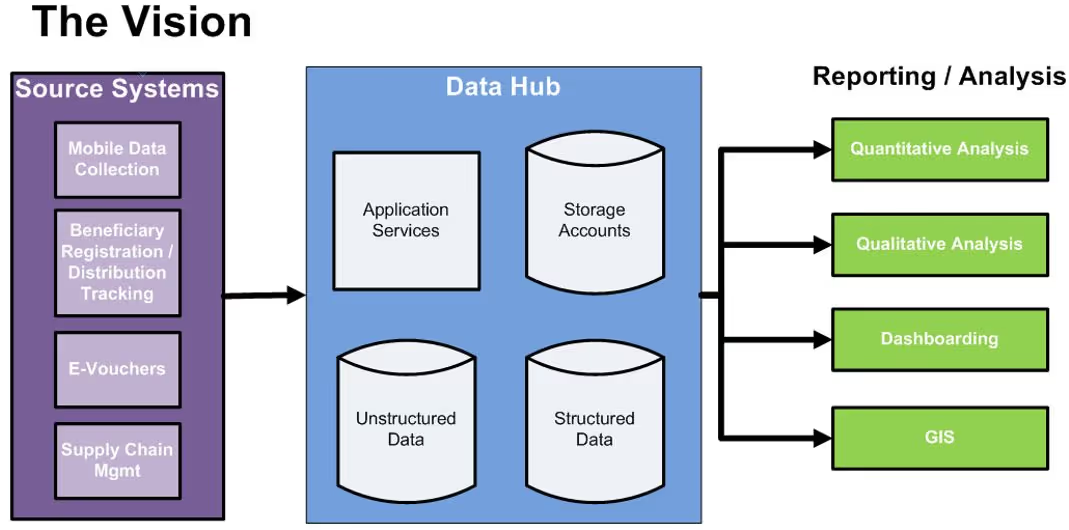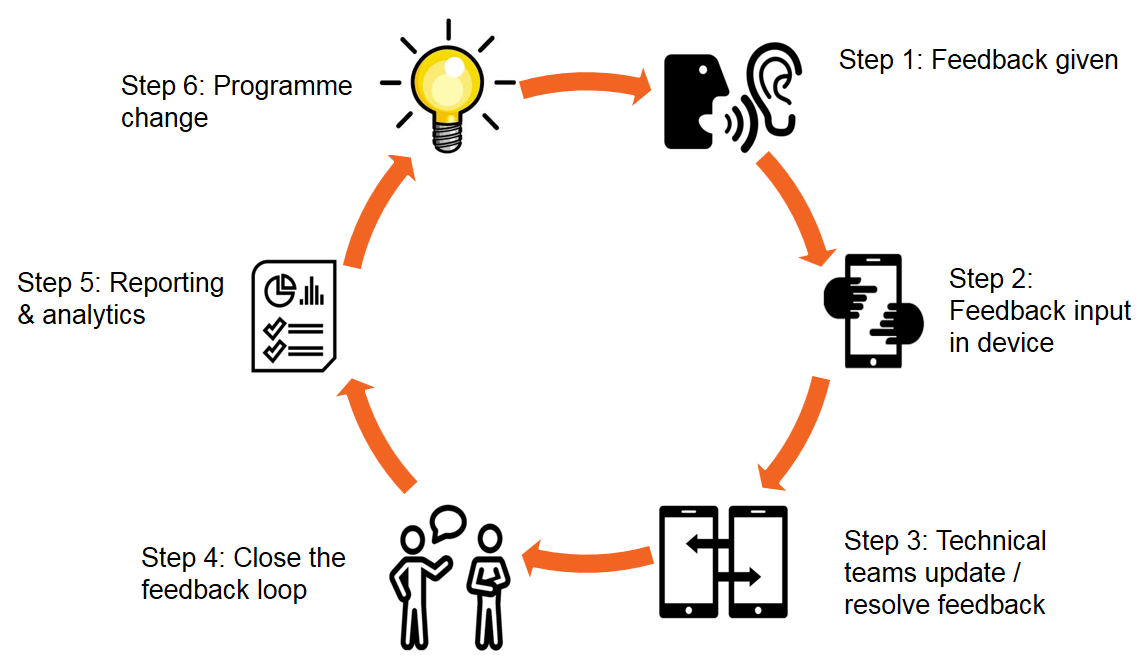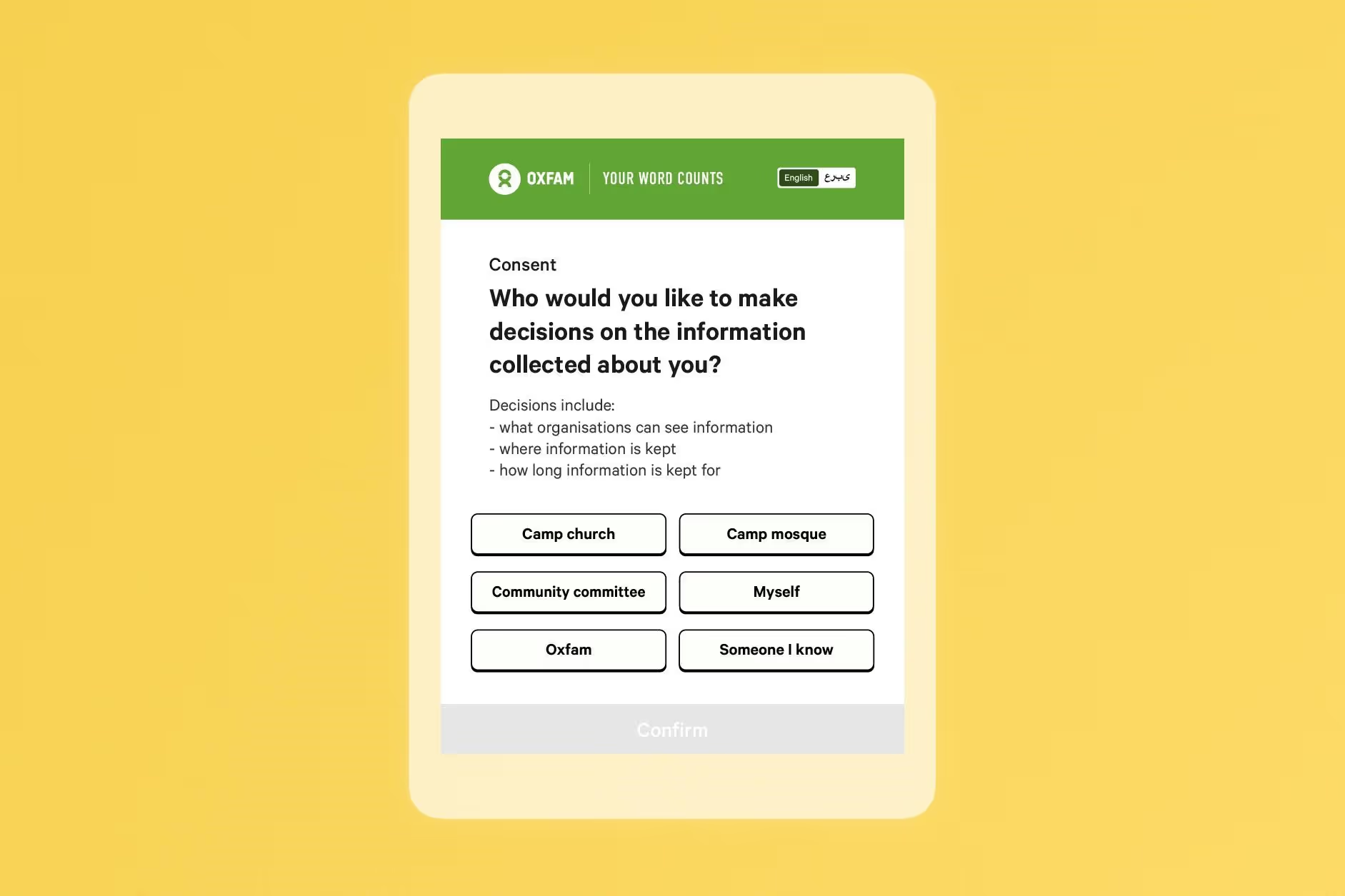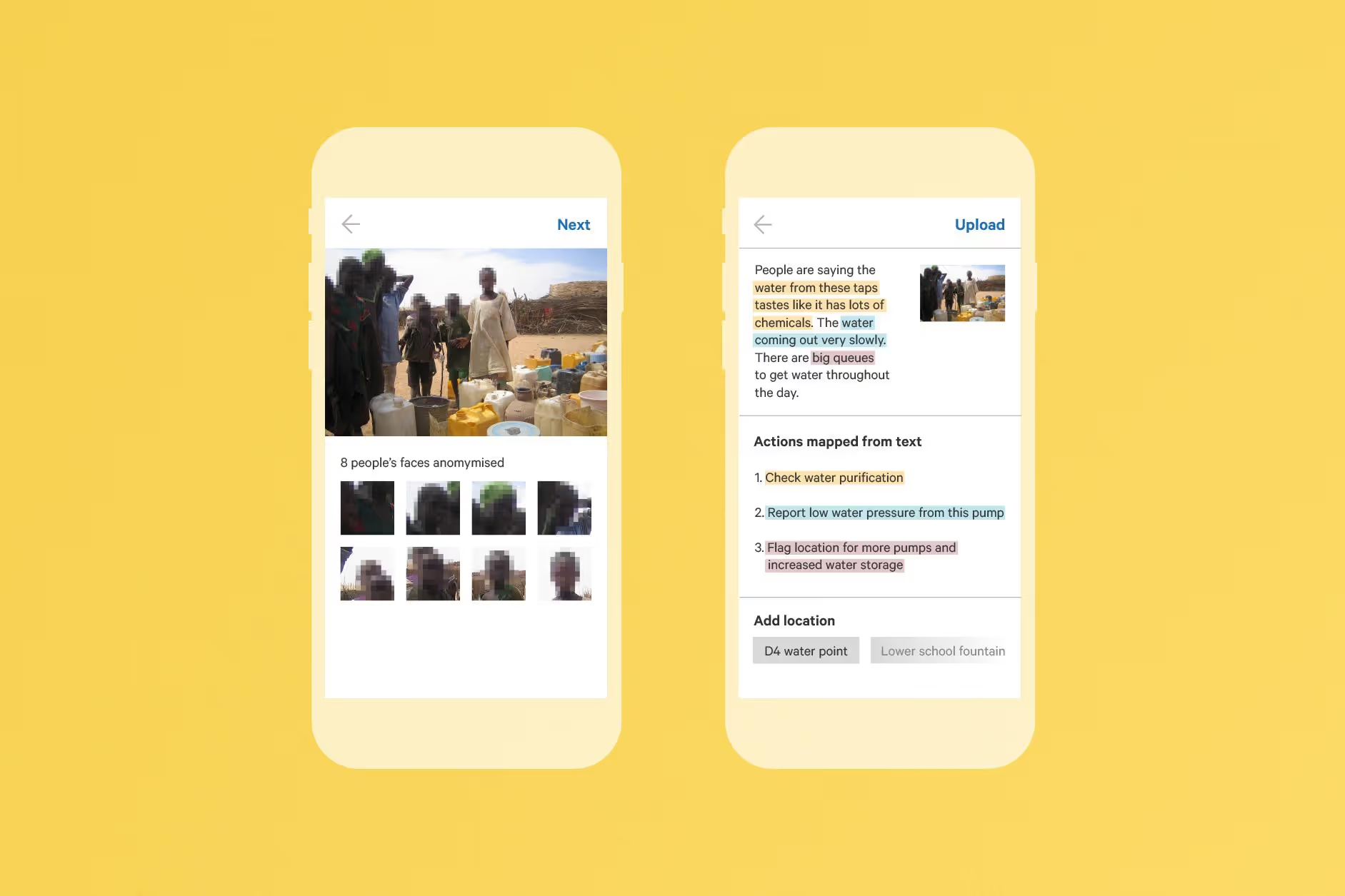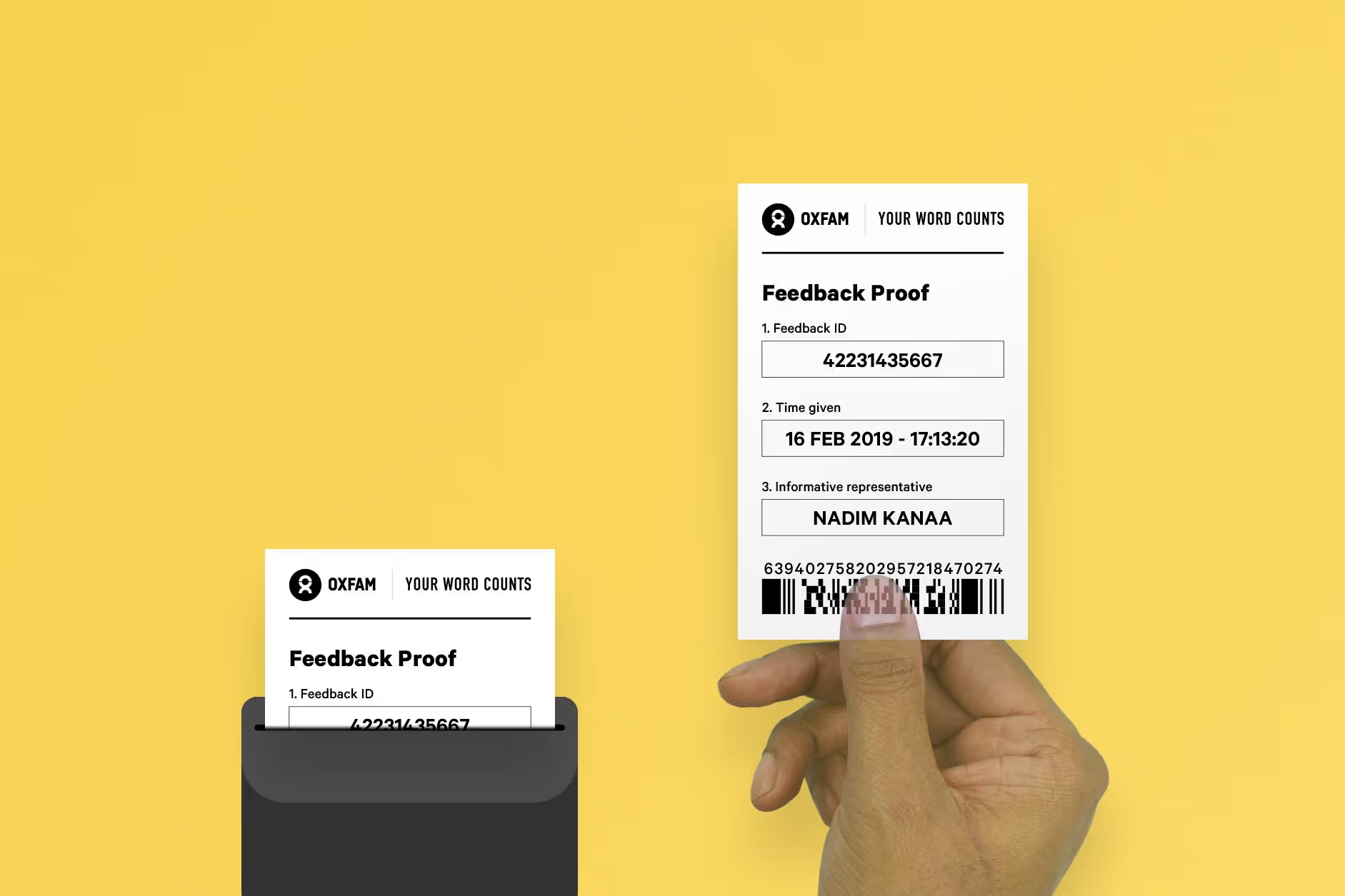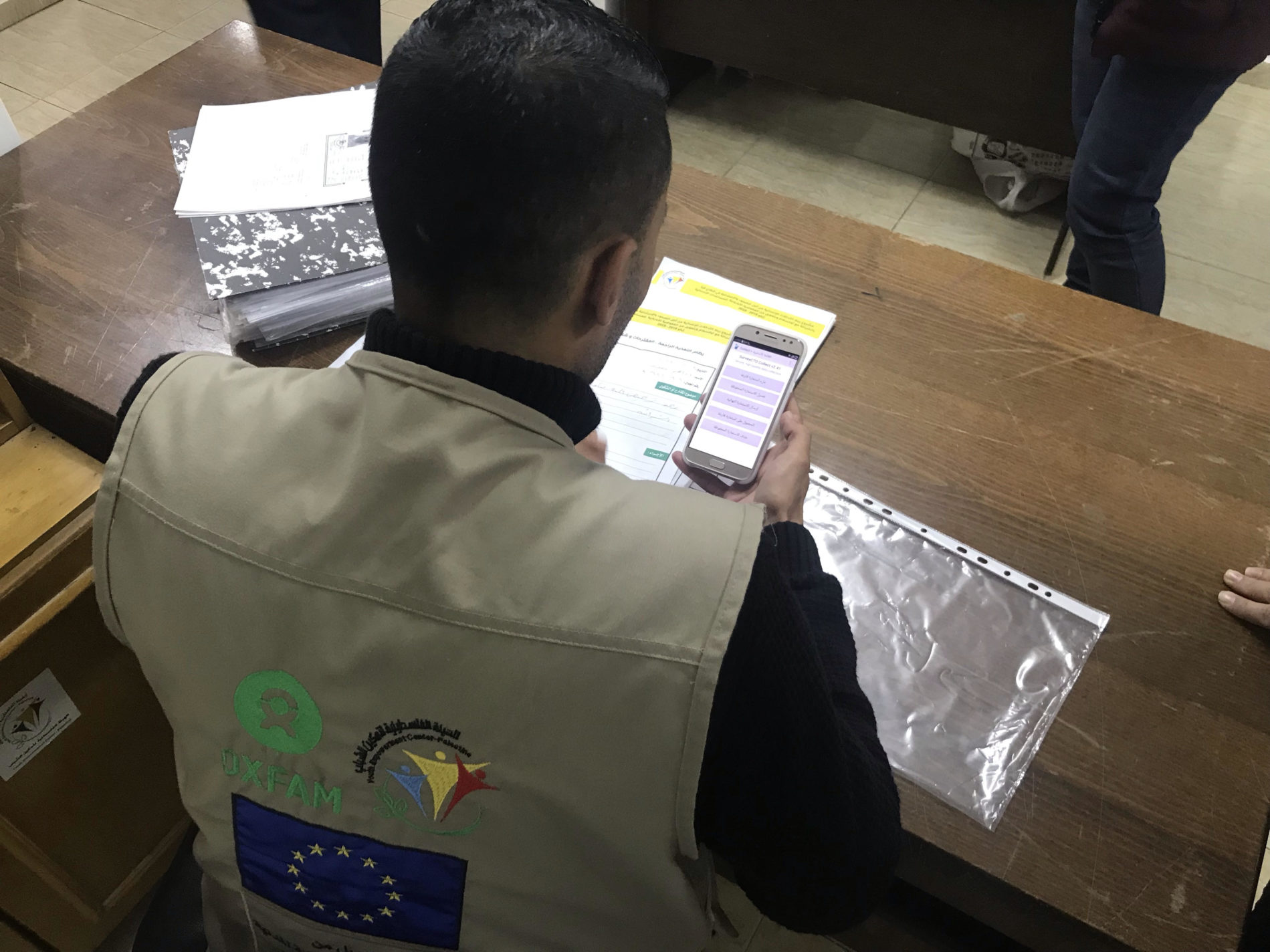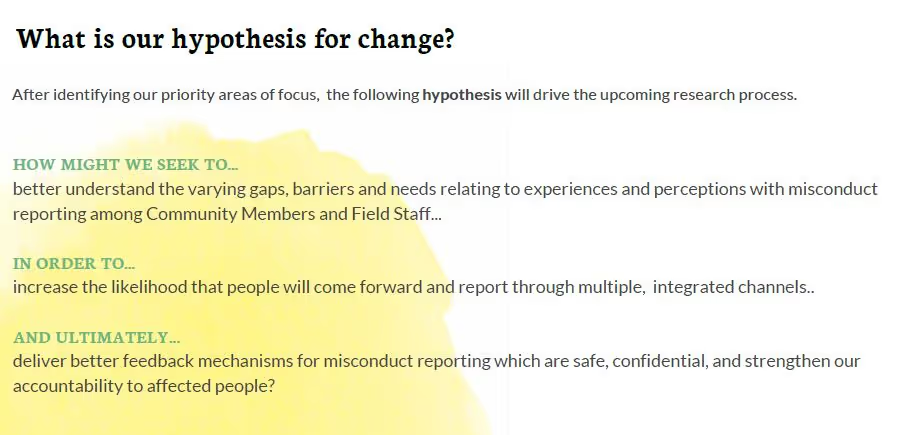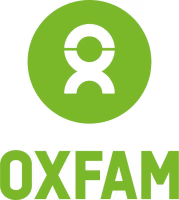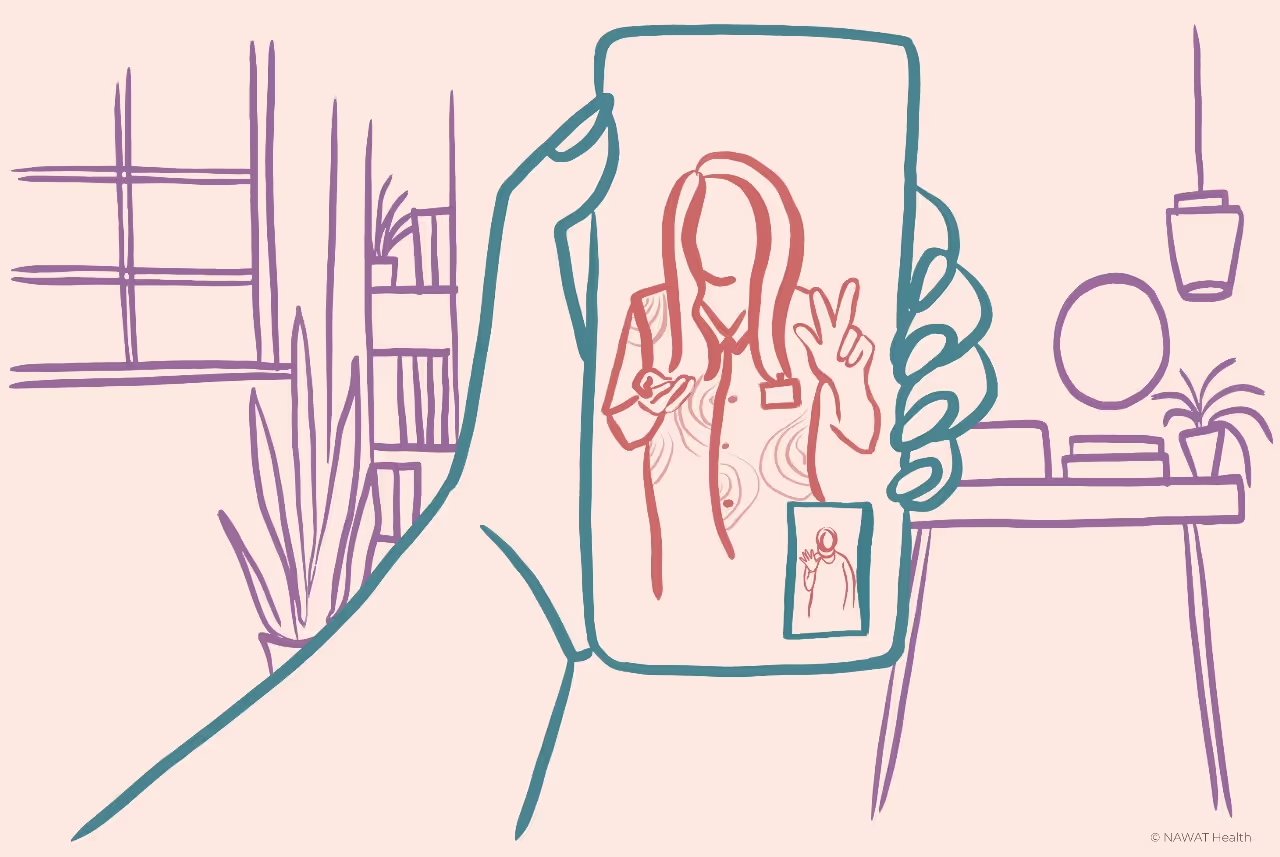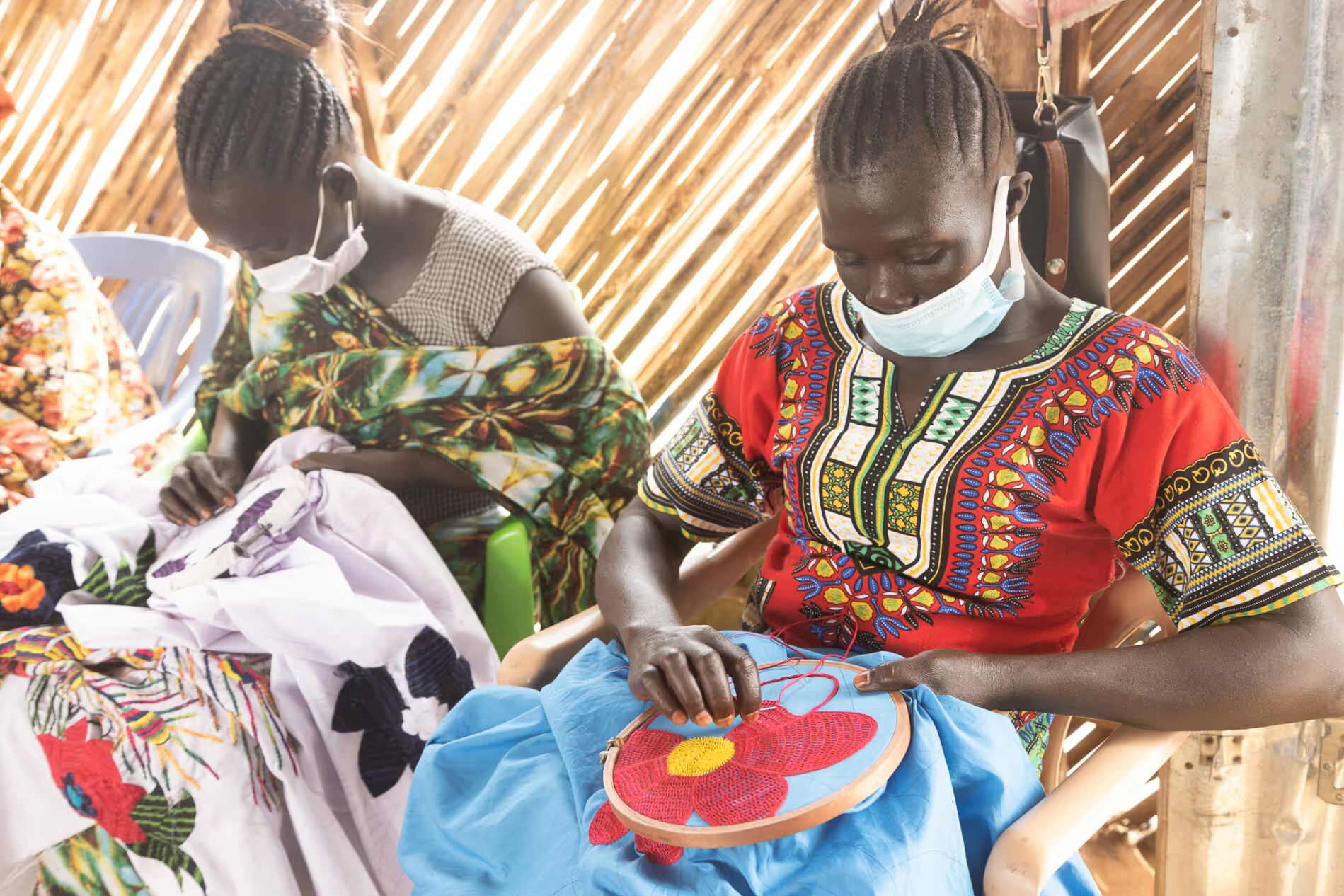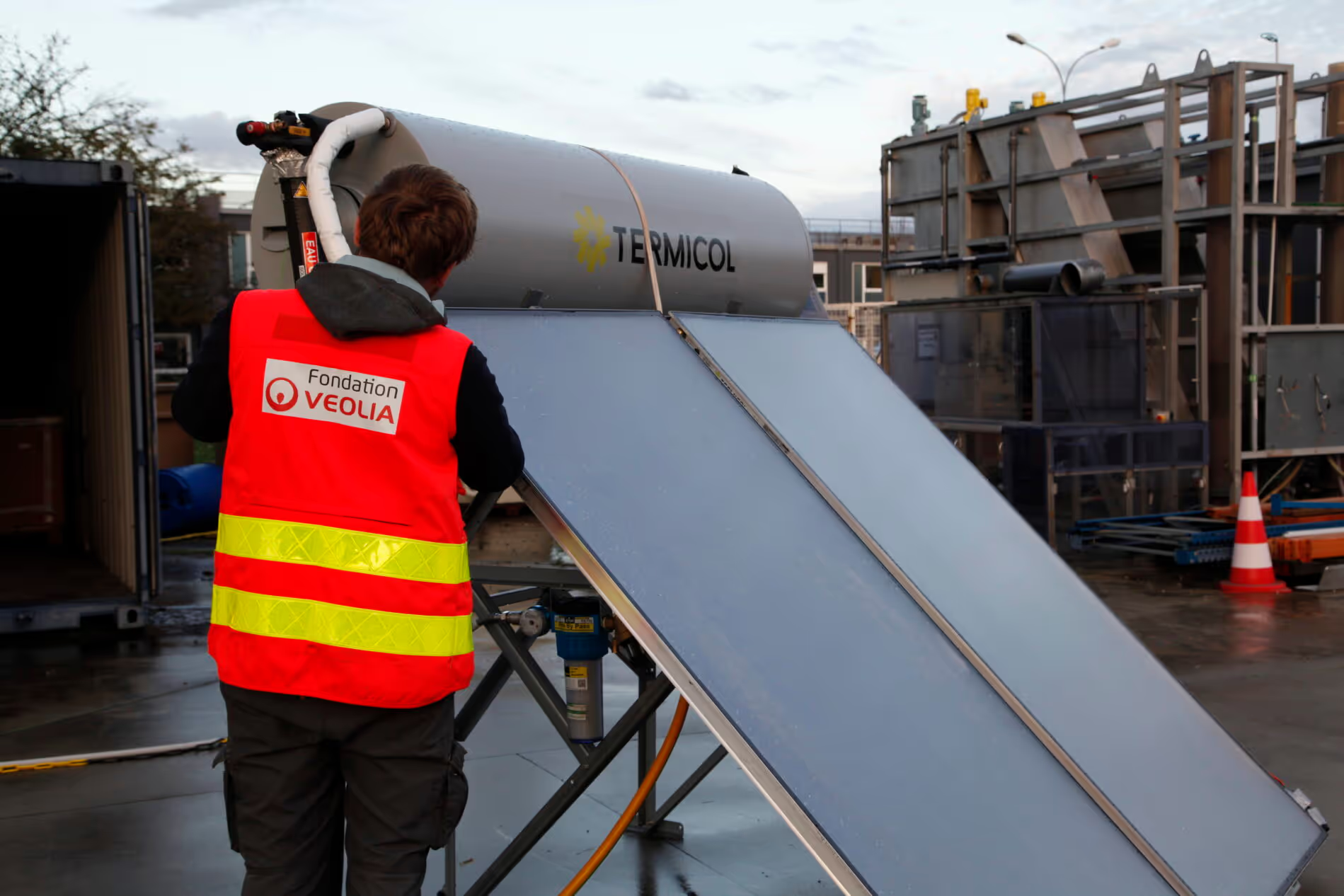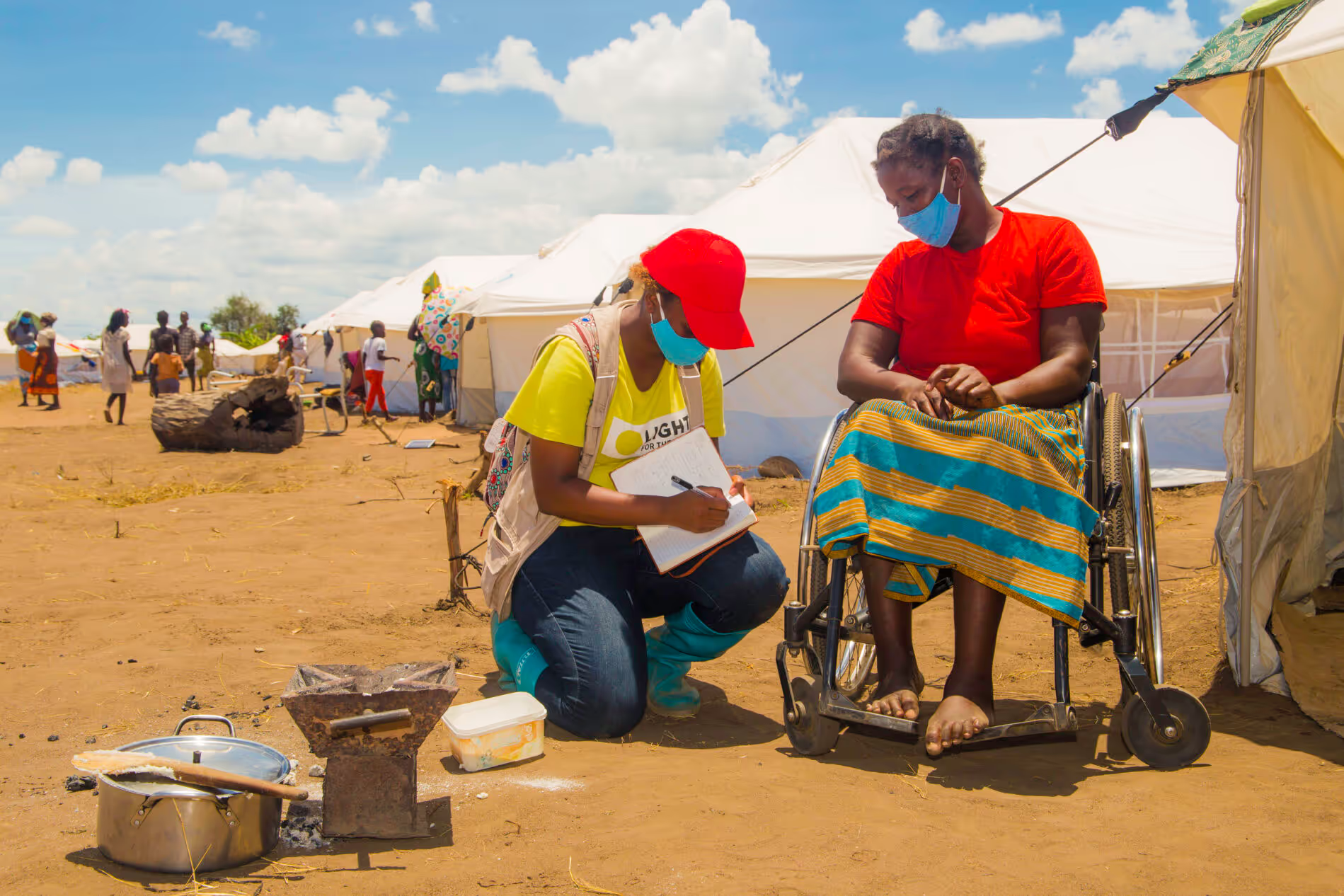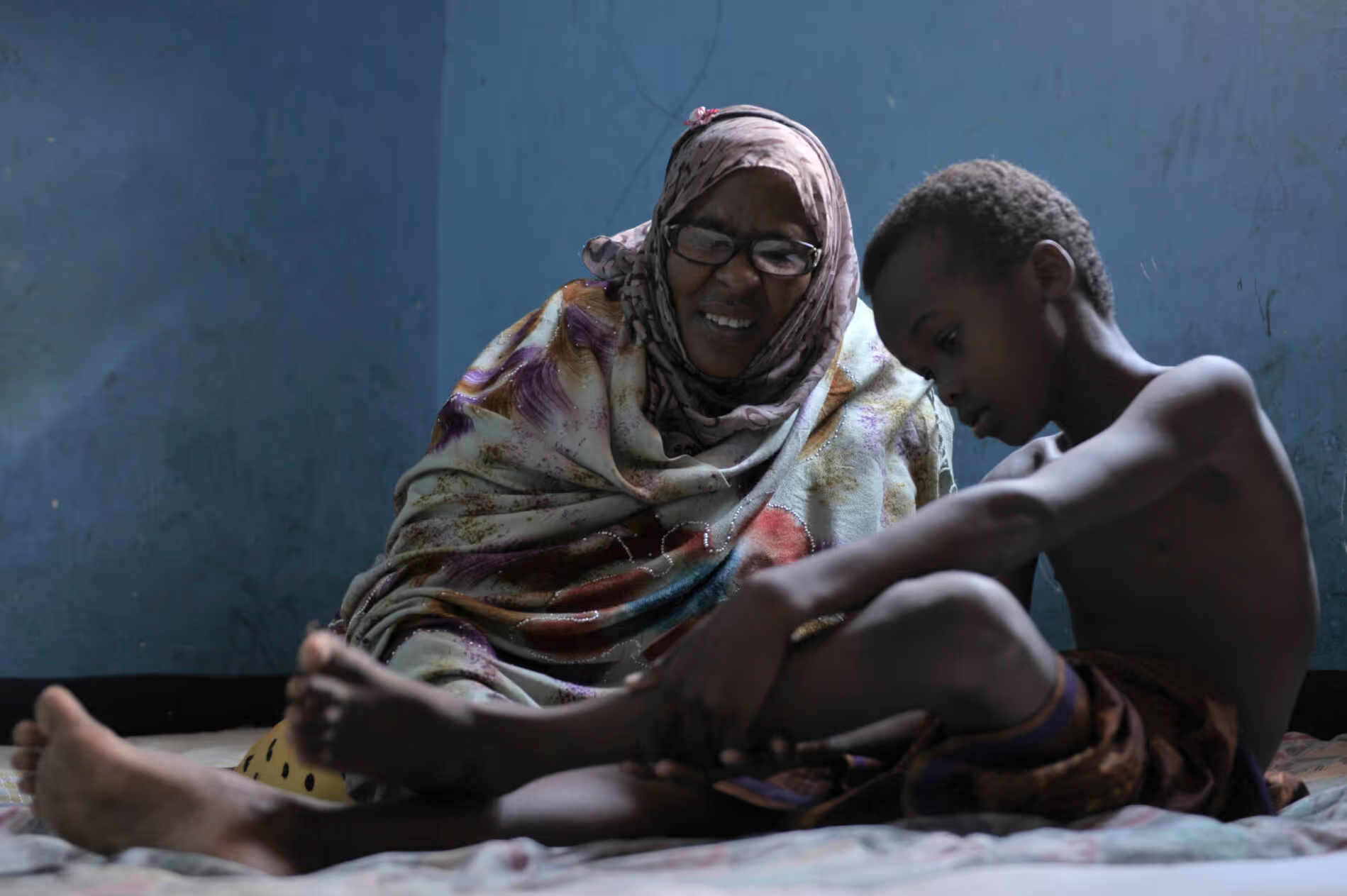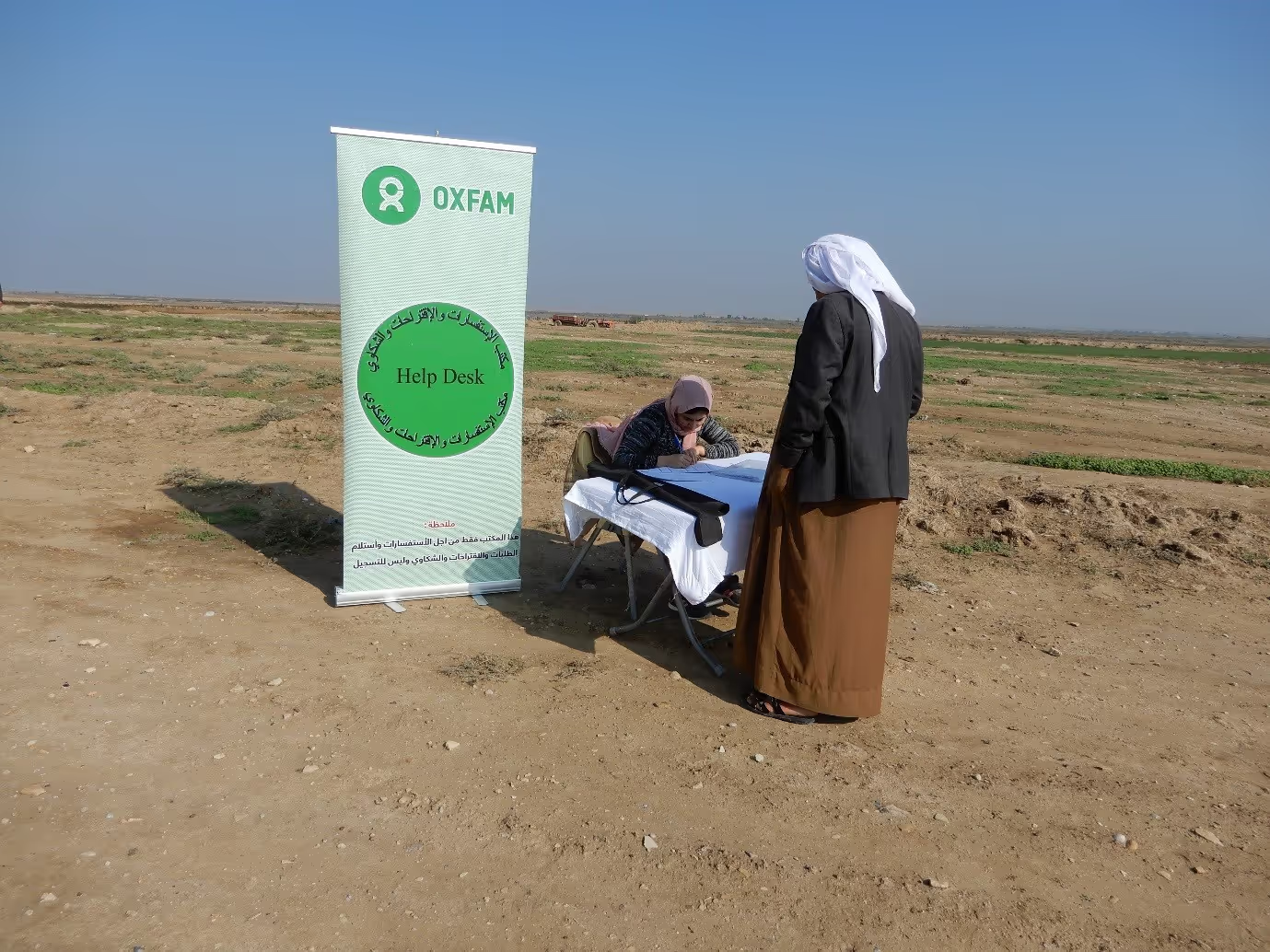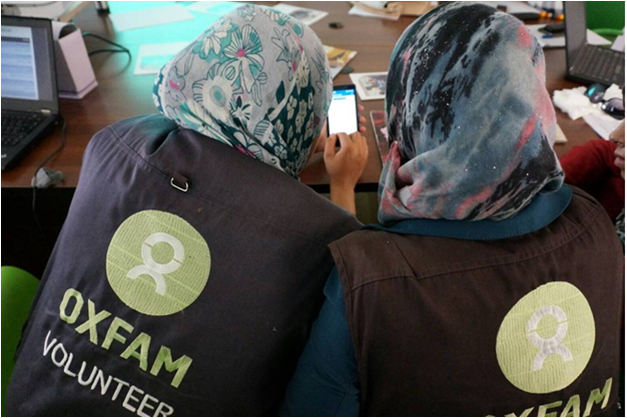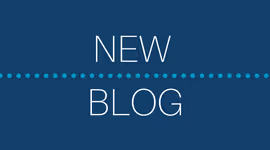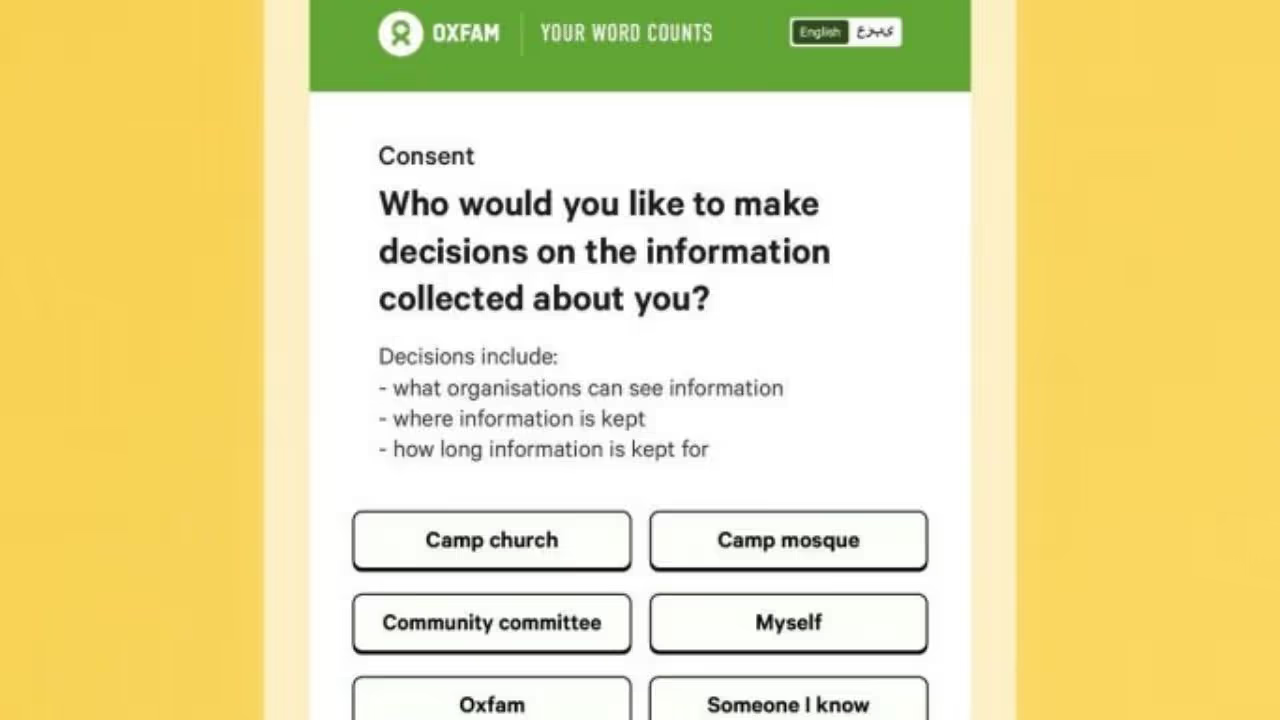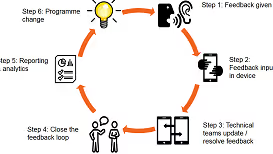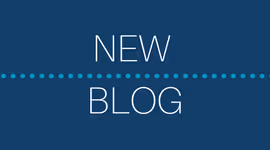Responsive listening through improved feedback mechanisms
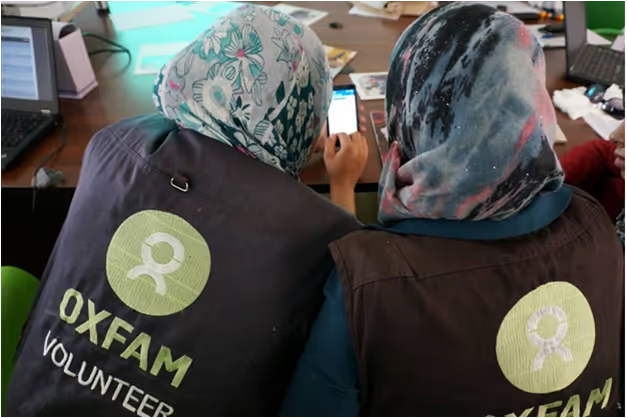
Project overview
Introduce a mobile case management tool across Oxfam’s Middle East humanitarian response with local and global partners to capture, analyse and respond to feedback data to inform the response and give those affected voice for improved support and services.
Countries
Iraq
Lebanon
Occupied Palestinian Territories and Israel
Syria
Yemen
Organisations
Oxfam GB
Partners
Projects by IF
Area of funding
Humanitarian Innovation
Grant amount
149800
Start date
07
January
2017
End date
07
March
2019
Project length (in months)
26.4
Funding calls
No items found.
Focus areas
No items found.
Topics
Accountability and participation
Status
Closed
Project solution
This project offers [specific solution or intervention] to tackle [challenge]. By implementing [strategies, tools, or innovations], the project aims to achieve [desired outcomes]. The approach is designed to [specific actions or methods] to bring about meaningful change in [community, region, or issue area].
Expected outcomes
This project aims to achieve [specific outcomes], such as [measurable results, improvements, or changes]. The expected impact includes [benefits to the target community, advancements in research or innovation, or long-term effects]. By the end of the project, we anticipate [specific changes or milestones] that will contribute to [broader goals or objectives].
No items found.
What is the humanitarian need?
Few feedback systems help staff coordinate with partners to manage the workflow associated with collecting, managing and responding to feedback received from communities affected by crisis. This is particularly true for informal feedback gathered face-to-face, which can offer the most insightful information available to humanitarian actors.
This prevents actors from learning what they are doing well, identifying gaps and leveraging mechanisms to coordinate across multiple actors. Good practice will always involve multiple channels offering options to give feedback. However, there is no system that brings these together as a coherent referral mechanism, including efficient handling of feedback.
What is the innovative solution?
This solution will focus on how we can innovatively collect report and analyse the data we receive – not just from specific country locations but also through regional reporting across multiple humanitarian projects and countries. This project will be applicable across other humanitarian and development programming, leading to the potential for global reporting on community feedback. Having a system that works as a referral mechanism right from the point of collection will not only support staff to automate a workflow allowing for faster action, but effectively close the feedback loop with communities. Crucially, more can be done with data once collected – moving beyond individual feedback to finding trends and altering our response based on the feedback, to altering national/regional/global strategy and feeding learning into the sector. Furthermore, this system has the potential to be cross-organisational with feedback being collected and referred between agencies working in the same environment.
What are the expected outcomes?
This innovation will allow humanitarian responses to be more accountable and responsive, ultimately improving real life outcomes for communities in crisis. Improving data reporting and analytics will enable staff to be more informed, take swifter action when required and use evidence to influence the programme where valuable. Where funding streams allow the reallocation of resources in crisis contexts, this can be done quickly and accurately to meet urgent needs evidenced with readily available feedback. It allows granular quantitative and qualitative details about service delivery to be accessed from a database while the project is still ongoing – auto-generating some of the simpler measures, avoiding communication delay, and saving staff time by negating the need for write-ups. It will improve Oxfam and our partners’ ability to plan, monitor, evaluate, be accountable and learn from our programming as we are more responsive to the needs of the community.

No items found.
Project delivery & updates
Stay up to date with the latest developments from this project. Here, you will find details on what has been delivered, resources created, and regular updates as the project progresses. Access key documents, reports, and other materials to see how the project is making an impact.
No resources/updates have been published yet for this project. Sign up for our newsletter to stay informed about upcoming publications and updates!
Join our Newsletter
Resources
Responsive Listening through Improved Feedback Mechanisms: End-of-project evaluation
Report
LEARN MORE